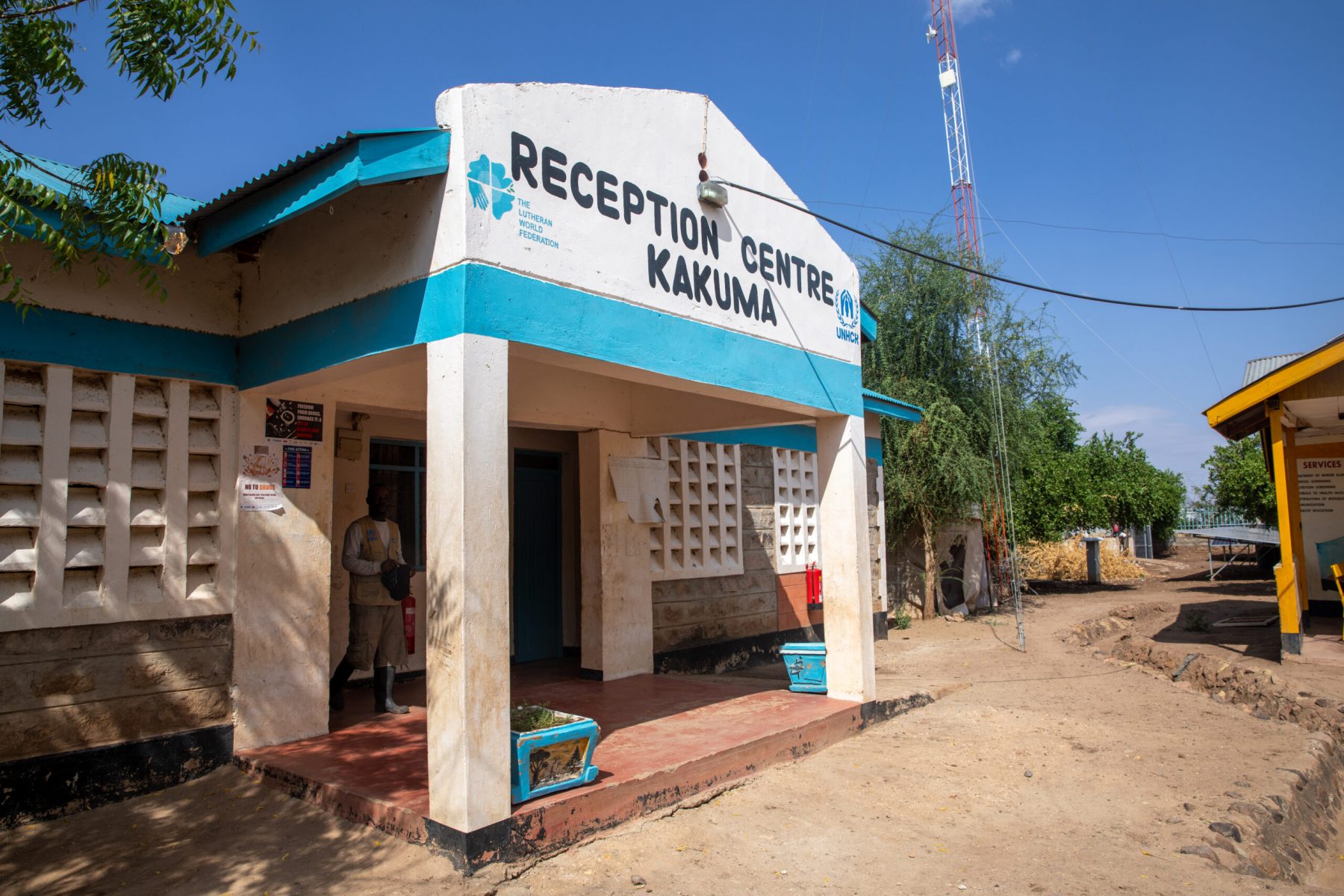Scroll through images above to see photos of Tonda’s recent visit to Kakuma
Kakuma, in Swahili, means “nowhere.” But for over 250,000 refugees, this place is not just a spot on the map of Kenya; it is a sanctuary, it’s a temporary home. My journey to Kakuma Refugee Camp unfolded stories that were as heart-wrenching as they were inspiring. Today, I share a story not just of a visit but of an emotional journey that touched my heart and made me a better person.
Driving through Kakuma to reach the Reception Center, I was immediately struck by the scale of what lay before me. This was no camp; it was a sprawling city, nearly five times the size of my hometown in the United States. The endless living spaces, tiny shops, people bustling around, livestock roaming about and the sounds of everyday life painted a picture of life and survival against all odds.
The Reception Center, the first point of contact for those seeking asylum, currently houses over capacity with no end in sight. It’s the first stop between despair and hope, where leaving for any reason means risking everything to start anew. However, this hasn’t dampened the spirit of those who find themselves here.
As our group walked through the Reception Center, within the overwhelming crowds of people and children, I found something truly unexpected – hope. It was in the eyes of people from diverse backgrounds, working together to make a community. Adults and children, side by side, learning English, women sharing the load in outdoor kitchens, women making baskets to sell and transforming any available space into classrooms. Their resilience was inspiring, and their dedication to creating a better life against all odds was overwhelming.
We were privileged to step into one of these makeshift classrooms, where children of what seemed to be junior high age were all engaged in learning. It was inspiring to watch these children of different backgrounds learn together. In another classroom, we could hear the energy of younger children, their voices rising in song and movement. It was here, in the laughter and movement, that I experienced a moment that would change me forever.
A toddler, I’m guessing around two or three, approached me as I clapped along with his class. His tiny hand found mine, and as I smiled and rubbed his back, a silent bond took root. He didn’t smile or seek comfort; he simply stood there, holding onto my hand. He gave his hand and his trust to a stranger who looked nothing like him and spoke so differently than him. It was here in that moment that my heart broke for him and for all the children like him, growing up in this uncertain world. A world that could be cruel, harsh and unforgiving.
As I stood there, lost in thoughts of his future, a profound realization washed over me. Our lives and geography look so different, but are connected in the most basic human wants – safety, acceptance, education, family and hope for a better tomorrow.
Would this child still be here next year, or five years from now? I don’t know, but what I do know is that all it took was for that tiny hand to reach up, grab ahold and trust, to ignite the fire of change that now burns deep in my core. You see, I am a grandmother, so believe that I know and love tiny hands, but I never would have guessed this small gesture made by a toddler would change me so profoundly.
Kakuma, “nowhere,” is indeed somewhere – it’s a place where the human spirit soars against adversity and injustice. It’s a reminder that with the stories of displacement and loss, there are also stories of resilience and most of all hope. As I look back on my journey, I’m reminded that our shared humanity sees no borders, and in that shared space, we find the true essence of compassion, home and community.
I will forever carry with me not just memories of that nameless toddler, but of a renewed sense of purpose. May we find the courage to face our challenges, to embrace humanity and to work towards a world where everyone has the chance to thrive, regardless of geography.
Tonda Pirtle is CWS’ Donor Relations Coordinator. Learn more about CWS’ work in Kenya here.





